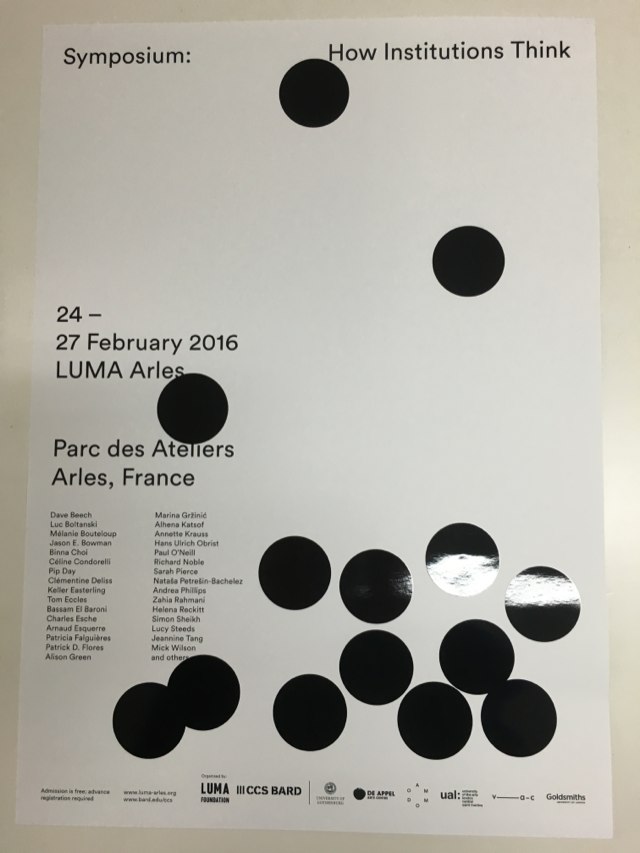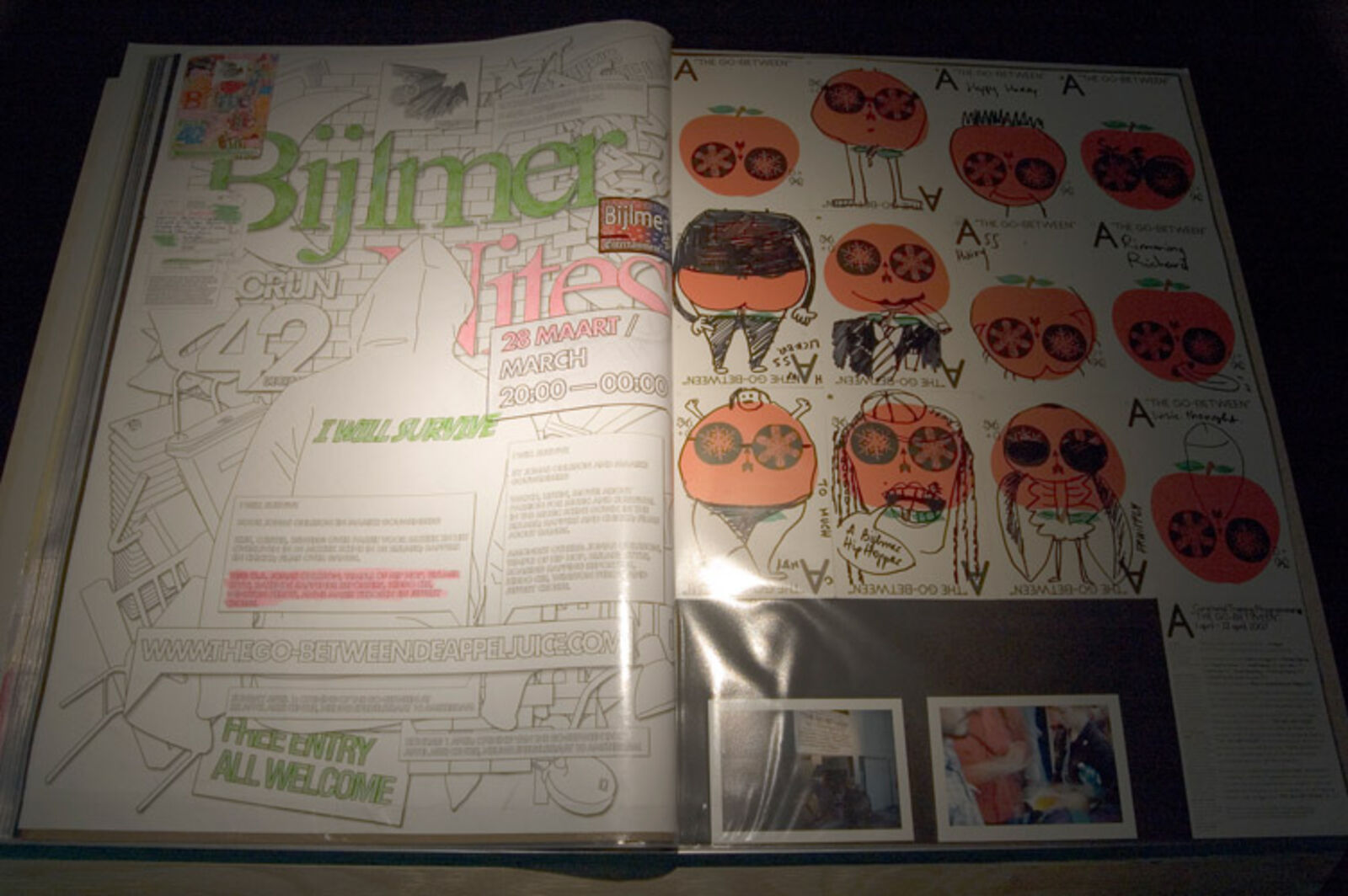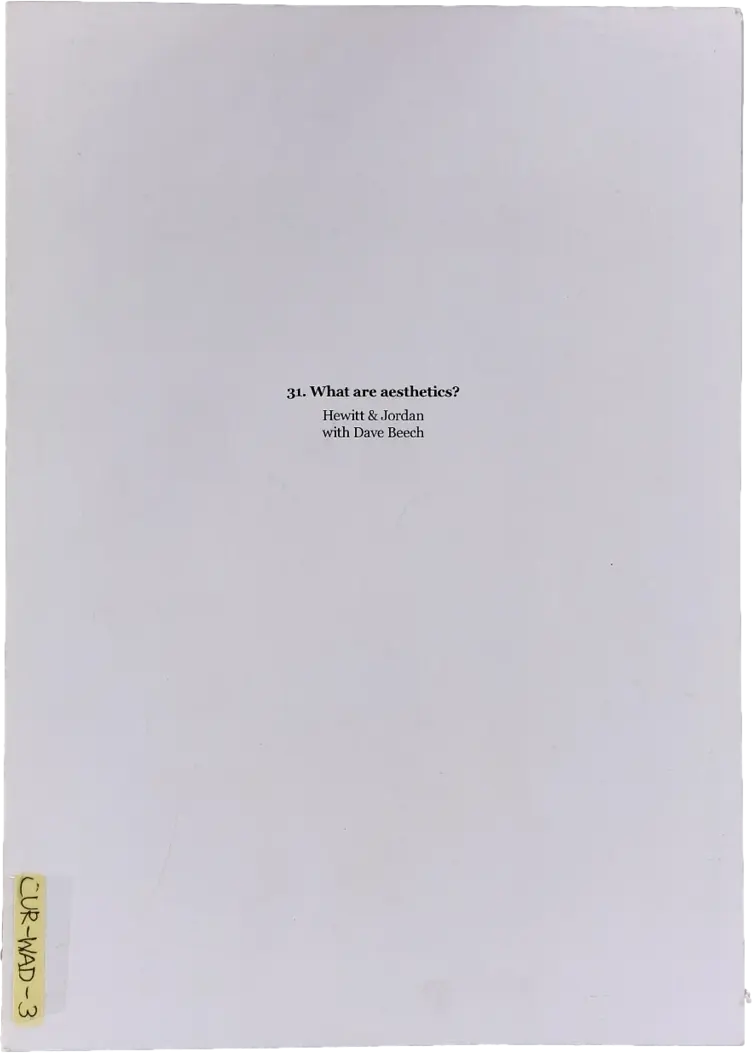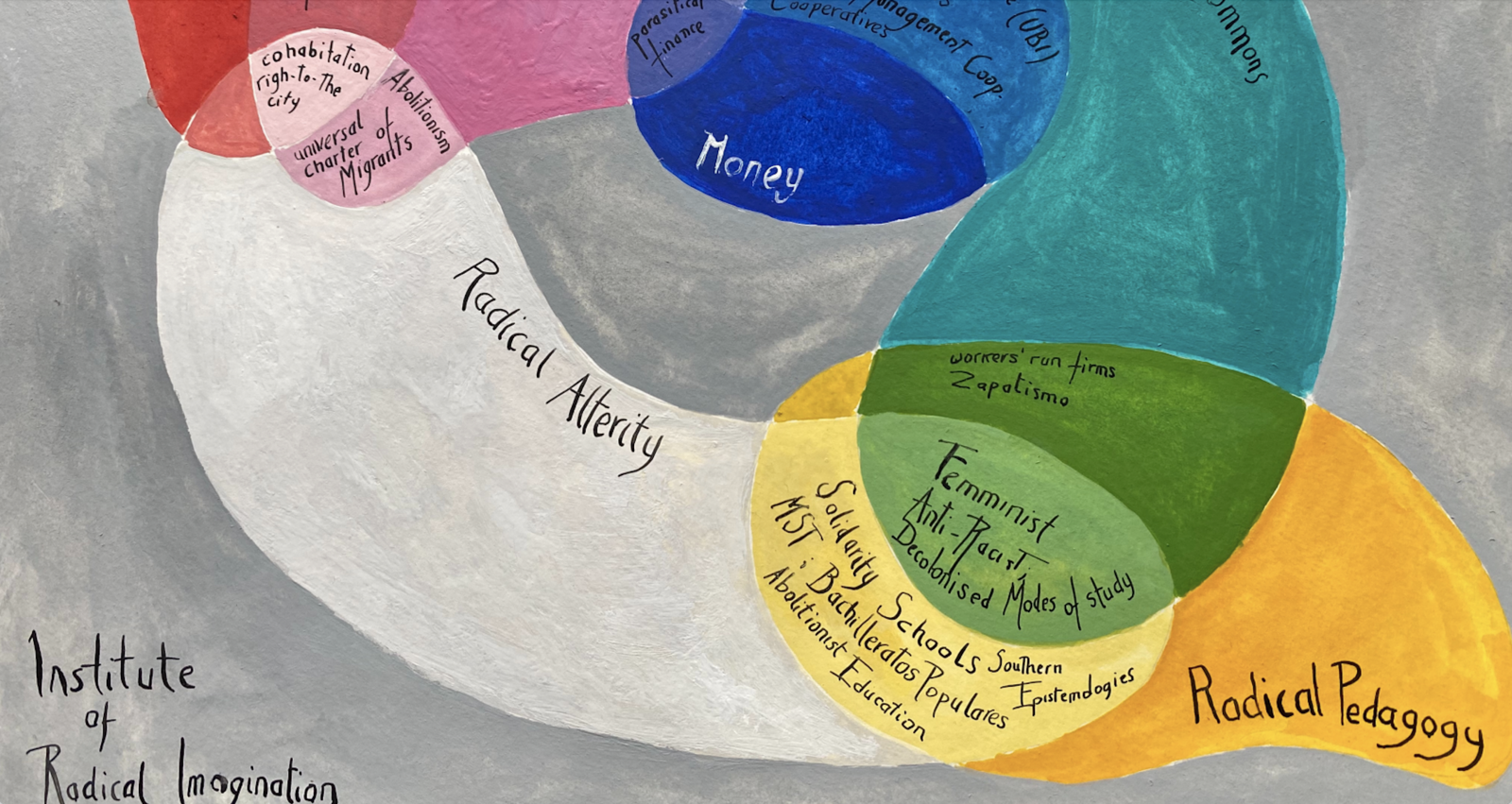How Institutions Think
Les Forges, Parc des Ateliers, Arles, France
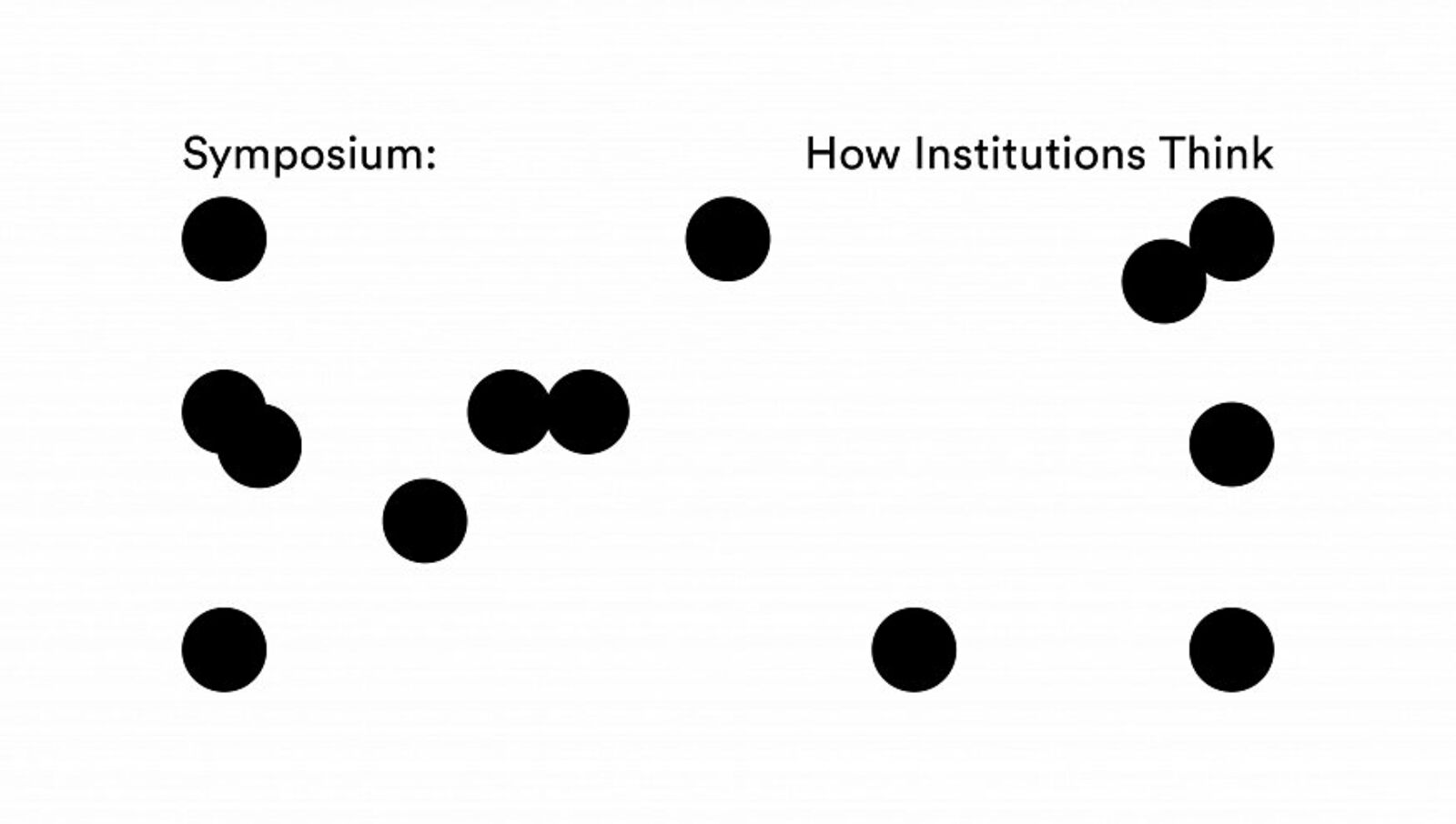
Contemporary art and curatorial discourse have been centrally concerned with questions of institution. In recent decades, we have seen many debates on institutional critique, new institutionalism, instituent practices, and self-organization. Most often these questions of institution have been apprehended through the categories of power, hegemony, hierarchy, control, value and discipline. Often in these debates, we seem to reach an impasse in contemporary art’s dialectic of institutionalized anti-institutionalism, but nonetheless new institutions of art and enquiry are being conceived, inaugurated and contested in different ways.
This symposium is organized by LUMA Foundation with Paul O’Neill and Tom Eccles (CCS Bard), in partnership with Guus van Engelshoven (de Appel arts centre, Amsterdam); Mick Wilson (Valand Academy of Arts, University of Gothenburg); Charles Esche, Alison Green, and Lucy Steeds (Central Saint Martins, University of the Arts London); Simon Sheikh (Department of Art, Goldsmiths, University of London); and Maria Mkrtycheva (the V-A-C Foundation, Moscow).
Registration
The symposium is free and open to the public.
Please register your place here
Speakers will include Luc Boltanski, Mélanie Bouteloup, Jason E. Bowman, Binna Choi, Céline Condorelli, Pip Day, Clémentine Deliss, Keller Easterling, Tom Eccles, Bassam El Baroni, Charles Esche, Arnaud Esquerre, Patrick D. Flores, Alison Green, Marina Gržinić, Alhena Katsof, Annette Krauss, Hans Ulrich Obrist, Paul O’Neill, Nataša Petrešin-Bachelez, Andrea Phillips, Zahia Rahmani, Simon Sheikh, Lucy Steeds, Jeannine Tang, Mick Wilson, and others, with remote choreography by Sarah Pierce.
This symposium – taking its title from Mary Douglas’s 1986 book, How Institutions Think – addresses the contemporary possibilities and limitations of institutional formats, practices and imaginaries, but starts from a different place, namely from categories of knowledge, cognition and the social. While questions of knowledge have been activated in earlier discussions of the institutions of art, it is much less common for the debate on institutions to be engaged with an emphasis on the social epistemology or cognitive operations of institutional forms and processes. Participants are invited to reconsider the practices, habits, models, revisions and rhetoric of institution and anti-institution in contemporary art and curating by considering themes of epistemic practice, of cognition and social bond, of power/knowledge, and of institution as an object of enquiry across many disciplines including political theory, organizational science and sociology.
Questions we face include: Is institution building anymore possible, feasible or desirable? Are there emergent future institutional models for progressive art and curatorial research practices? How do we construct and legitimate our institutions? How do we know when institutions make decisions and whether these decisions are built upon ethical principles? Can we institute ethical principles and build our institutions accordingly? If so, for whom are we building these future institutions? Are thoughts of institution anywhere different? In what way might institution be multiple? In what ways can we think extra-institutionally, contra-institutionally, an-institutionally, para-institutionally? Is institution the condition of potential thinking and of critique? Wither institution?
The symposium brings together an international and multi-disciplinary group of speakers who are invited to reflect upon how institutional practices inform art, curatorial, educational and research practices as much as they shape the world around us. It also aims to propose new, innovative and emergent forms of institutional practice. Implementing a work-together methodology, combining and sharing networks and knowledge resources, the symposium asks how we may begin to conceptualize and build possible institutions/anti-institutions of the future: What are the models, resources, skills and knowledge-bases required to build a new, innovative and progressive research-led institution, if such a thing is indeed possible?
Through the symposium series we seek to develop a globally networked enquiry into the future of curatorial practice. For this second symposium in the series, we have come together in a period of radical uncertainty and reactive securitizing control to consider how we imagine the dialectic of institution/anti-institution beyond increasingly anachronistic and narrow geopolitical terms.
The symposium is part of an ongoing collaboration between CCS Bard and the LUMA Foundation, which is currently developing a new centre for cultural production in Arles, France. The LUMA project is located in the former railway yards of Arles and includes a major new building designed by Frank Gehry and the renovation of the industrial buildings on the Parc des Ateliers by Selldorf Architects. Previous symposia organized by the LUMA Foundation and Bard College were The Future Curatorial Whatnot Study What, Conundrum (2014) that took place at the Center for Curatorial Studies, Bard College; The Flood of Rights (2013) and The Human Snapshot (2011), both held in Arles.
Video will be made available after the symposium, along with a follow-up publication to be released in 2017.
